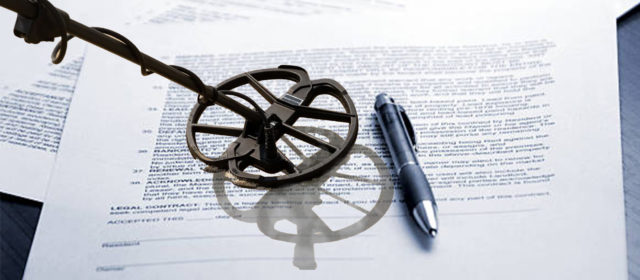Walking the Fine Line: Introduction to Metal Detecting Regulations
Metal detecting can feel like a treasure hunt, filled with the thrill of the unexpected. However, this hobby also requires a strong understanding and adherence to various regulations to ensure legal and ethical practice.
Know Before You Go: The Importance of Permission
Before you set out on your treasure-hunting adventure, obtaining permission is key. This is especially true if you plan to detect on private land. Always ask for the owner’s consent to avoid trespassing.
Public Lands and Parks: Varying Regulations
Each state and city may have its own rules regarding metal detecting in public spaces like parks, beaches, and recreational areas. Some allow free rein, while others require a permit or restrict detecting to certain areas. Always check the local laws in your area.
Protecting Historical Sites: Strict Prohibitions
Sites of historical or archaeological importance are typically off-limits for metal detecting. The Archaeological Resources Protection Act (ARPA) in the U.S., for example, prohibits the excavation or removal of archaeological resources from federal and tribal lands.
National Forests and Bureau of Land Management Areas
While metal detecting is generally allowed in National Forests and BLM areas, certain restrictions may apply, particularly for historical or archaeological sites. It’s important to familiarize yourself with these rules to avoid legal complications.
National Parks: A No-Go Zone
Metal detecting is strictly forbidden in National Parks, monuments, historical sites, and seashores managed by the National Park Service. These sites are preserved for their natural and historical value.
Handling Findings: What to Do with Discovered Items
Depending on the nature of your find, different rules apply. Items of significant historical or archaeological value may need to be reported to local authorities. Understanding the Treasure Trove laws in your region is crucial.
Best Practices: A Quick Checklist
Here are a few general rules to keep in mind for a legal and respectful metal detecting experience:
- Always get permission.
- Research local, state, and federal laws.
- Don’t metal detect in protected areas.
- Respect nature and private property.
- Report significant historical finds.
In Conclusion: Responsible Metal Detecting
As with any hobby that interacts closely with the environment and public spaces, metal detecting comes with a set of regulations. Understanding and respecting these laws ensures that we can continue to enjoy this fascinating hobby while preserving our cultural heritage.
References:
- “The Law and Metal Detecting” National Council for Metal Detecting
- “Metal Detecting and the Law” MetalDetectorDirect
- “Know Before You Go” Bureau of Land Management







Recent Comments